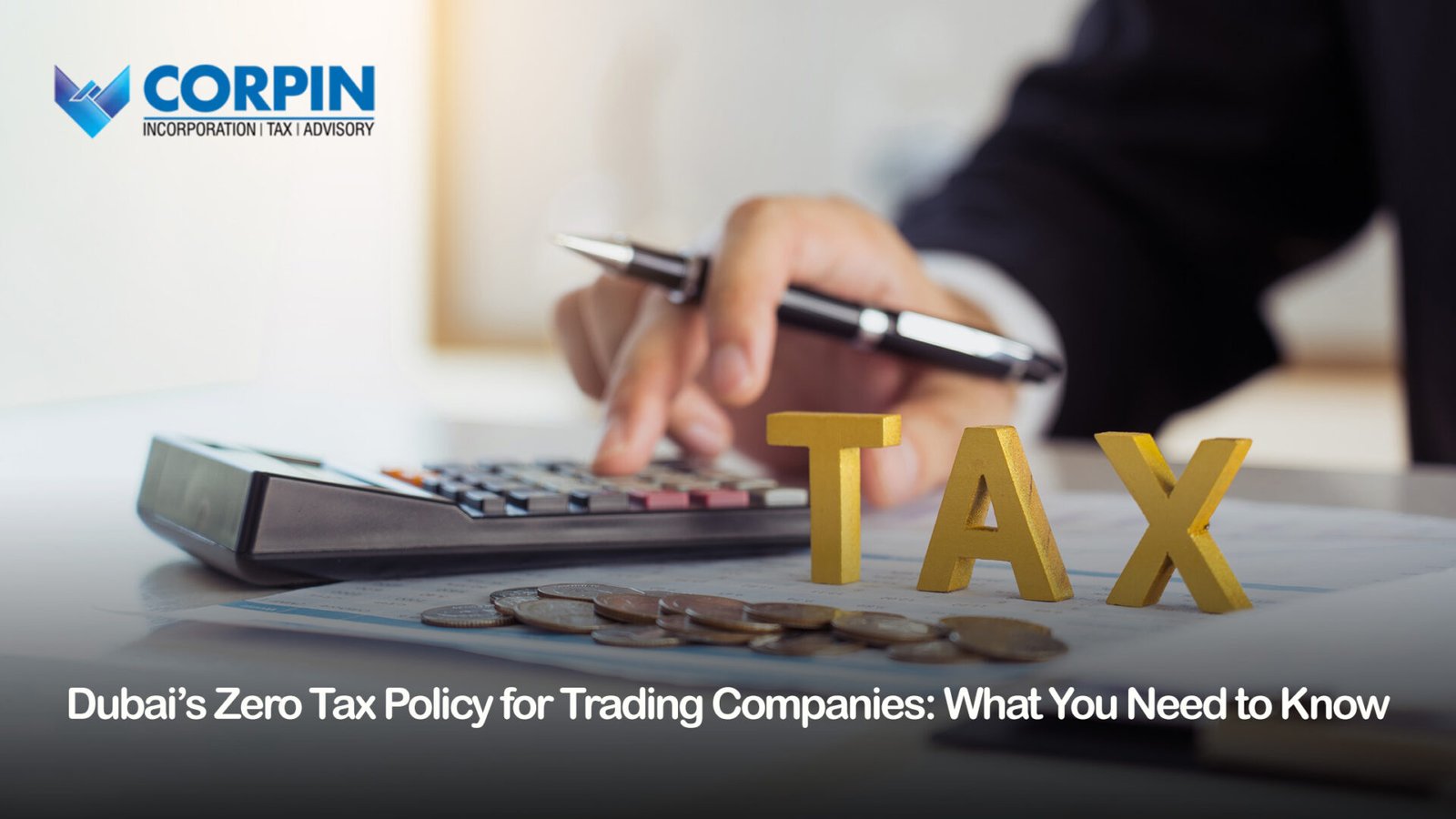Dubai has become one of the world’s top destinations for trading businesses, thanks to its favorable tax structure, strategic location, and ease of doing business. With a zero corporate tax policy for most companies, particularly those engaged in international trade, Dubai offers a compelling environment for entrepreneurs looking to maximize profits and reduce tax liability.
Trading activities that qualify include import and export of goods, commodity trading (such as gold, oil, and textiles), e-commerce, and wholesale distribution. However, a 5% Value Added Tax (VAT) may apply if your annual turnover exceeds AED 375,000.
Who Benefits from Dubai’s Zero-Tax Trading Policy?
Free Zone Trading Companies
Free Zones like DMCC, JAFZA, and DAFZA offer significant benefits for trading businesses. Companies operating within these zones enjoy 100% foreign ownership, no corporate or personal income tax, customs duty exemptions, and full repatriation of profits. These Free Zones are ideal for businesses that focus on international markets and don’t require access to the UAE domestic economy.
Mainland Trading Companies
Mainland companies also benefit from the 0% tax rate, provided they operate in non-taxable sectors such as general trading, retail, and services. As long as the business does not engage in oil, gas, or banking activities, and keeps its taxable profit below the threshold, it can remain tax-free. Mainland setups are ideal for businesses that want to operate both locally within the UAE and globally.
Recent Changes and Tax Exceptions
While Dubai continues to offer attractive tax incentives, there have been some regulatory updates and exceptions that trading companies should be aware of.
Corporate Tax (Effective June 2023)
The UAE introduced a 9% corporate tax that applies only to companies with taxable profits exceeding AED 375,000 per year. Small and mid-sized businesses that stay below this threshold are not subject to corporate tax and continue to operate tax-free.
VAT Obligations
All companies with annual revenues over AED 375,000 must register for VAT. A standard 5% VAT is charged on applicable transactions, especially for goods and services sold within the UAE. Exports, however, are generally zero-rated.
Customs Duties on Imports
A 5% customs duty is levied on most imported goods. Free Zone companies can avoid this duty if the goods are re-exported outside the UAE. This makes Free Zones highly attractive for businesses engaged in regional and global distribution.
Setting Up a Zero-Tax Trading Company in Dubai
Starting a trading company in Dubai involves a few key steps. The first decision is whether to set up in a Free Zone or on the mainland.
Free Zone vs. Mainland Setup
Free Zone companies are limited to international operations and cannot trade directly with the UAE market without a local distributor. Mainland companies can freely operate within the UAE and abroad, but must comply with the new corporate tax rules if profits exceed the threshold.
Choosing a Trading License
Depending on your business model, you can apply for either a General Trading License, which covers multiple product categories, or a Specific Trading License for industries like electronics, food, or gold.
Business Registration Process
To register, you’ll need to submit documents including a passport copy, business plan, and office lease agreement. In most Free Zones, licensing can be completed within 3 to 7 business days.
Opening a Bank Account
After registration, opening a corporate bank account is essential. Note that some banks may require proof of a physical office space or local utility bills.
Maximizing Tax Benefits in Dubai
To ensure full advantage of Dubai’s tax incentives, trading businesses should operate strategically. Free Zone businesses should avoid transactions with the UAE mainland to maintain full tax exemption. Using zones like DMCC or JAFZA can also provide additional sector-specific benefits.
Smaller businesses may choose to manage earnings so they stay under the AED 375,000 profit threshold, avoiding corporate tax altogether. Additionally, importing goods into a Free Zone and then re-exporting them allows companies to bypass customs duties. By focusing on international sales and avoiding local transactions, businesses can also reduce VAT obligations.
Common Mistakes to Avoid
Some businesses mistakenly assume that all income in Dubai is tax-free. While many companies enjoy 0% tax, those on the mainland exceeding the profit threshold are subject to corporate tax. Others overlook VAT registration, exposing themselves to penalties. Another common mistake is selecting the wrong Free Zone—each specializes in different industries and services. For example, DMCC is ideal for precious metals and commodities trading, while JAFZA caters more to logistics and large-scale distribution.
Conclusion: Is Dubai Still a Tax-Free Trading Hub?
Yes — Dubai continues to be one of the most tax-efficient jurisdictions globally for trading businesses. By operating within Free Zones or keeping mainland profits under the taxable threshold, companies can still benefit from 0% corporate tax. With the right structure and compliance in place, businesses in Dubai gain access to world-class infrastructure, global markets, and a pro-business regulatory environment that encourages growth and investment.
If you’re planning to launch a tax-efficient trading business in Dubai, Corpin Consultants is your trusted partner. As the leading business setup experts in Dubai, we’ll help you choose the ideal Free Zone, secure the right license, and connect with reliable banking partners — all tailored to your industry and goals.
Reach out to Corpin Consultants for a free consultation and start your journey to a successful business in Dubai today.





 Cost Calculator
Cost Calculator Book your Free Consultation
Book your Free Consultation